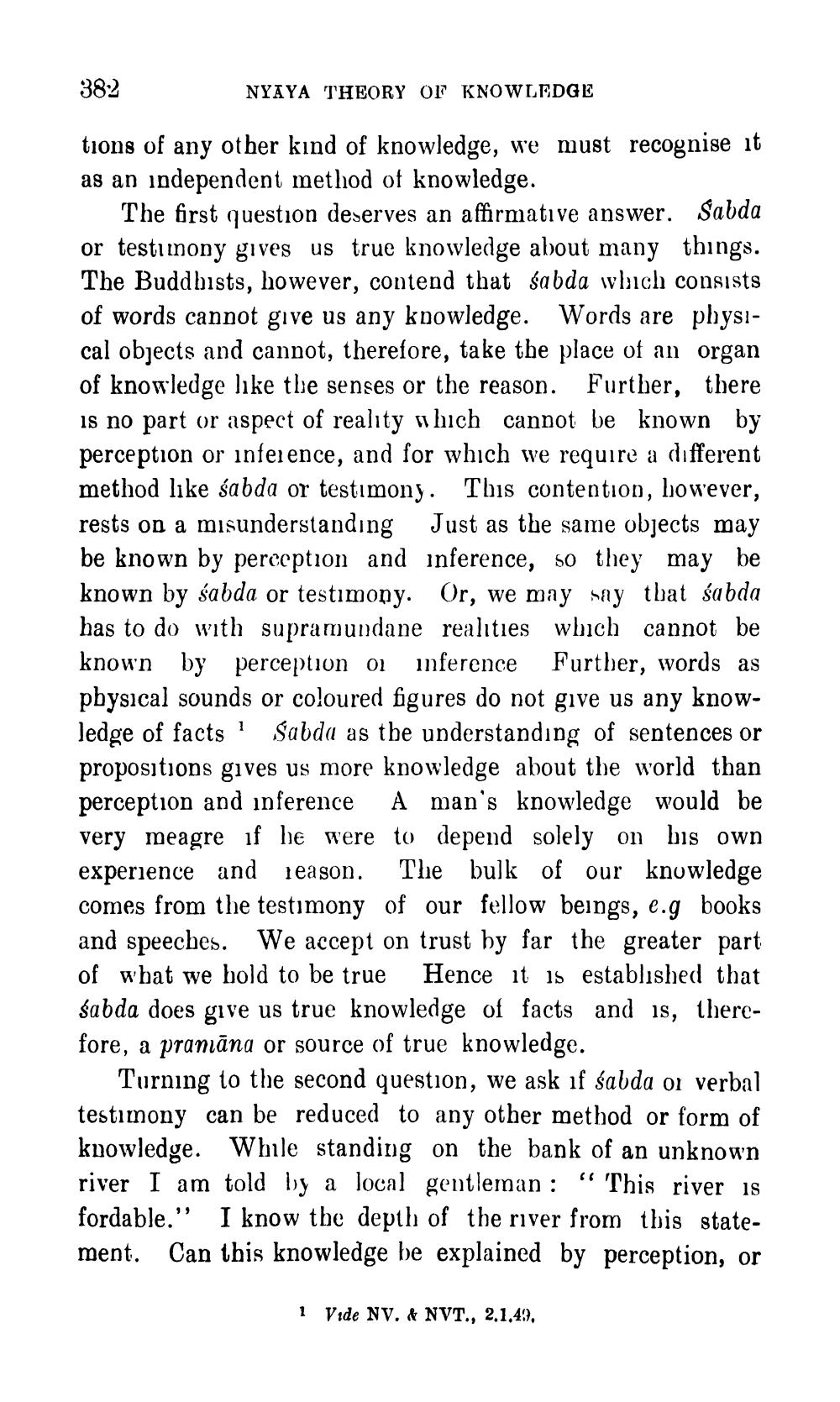________________
382
tions of any other kind of knowledge, we must recognise it as an independent method of knowledge.
The first question deserves an affirmative answer. Sabda or testimony gives us true knowledge about many things. The Buddhists, however, contend that sabda which consists of words cannot give us any knowledge. Words are physical objects and cannot, therefore, take the place of an organ of knowledge like the senses or the reason. Further, there is no part or aspect of reality which cannot be known by perception or inference, and for which we require a different method like sabda or testimony. This contention, however, rests on a misunderstanding Just as the same objects may be known by perception and inference, so they may be known by sabda or testimony. Or, we may say that sabda has to do with supramundane realities which cannot be known by perception o1 inference Further, words as physical sounds or coloured figures do not give us any knowledge of facts 1 Sabda as the understanding of sentences or propositions gives us more knowledge about the world than perception and inference A man's knowledge would be very meagre if he were to depend solely on his own experience and reason. The bulk of our knowledge comes from the testimony of our fellow beings, e.g books and speeches. We accept on trust by far the greater part of what we hold to be true Hence it is established that sabda does give us true knowledge of facts and is, therefore, a pramāna or source of true knowledge.
Turning to the second question, we ask if sabda or verbal testimony can be reduced to any other method or form of knowledge. While standing on the bank of an unknown river I am told by a local gentleman: "This river is fordable.' I know the depth of the river from this statement. Can this knowledge be explained by perception, or
..
NYAYA THEORY OF KNOWLEDGE
1 Vide NV. & NVT., 2.1.43,




